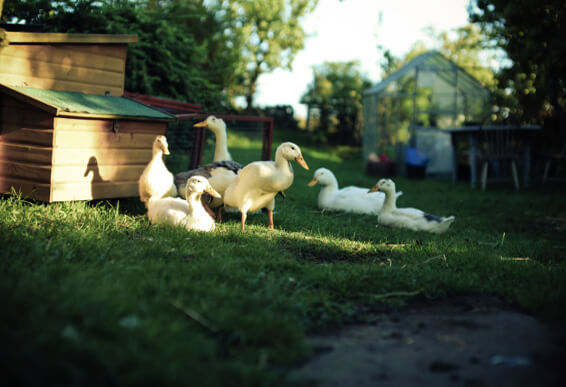
If you are raising ducks, you know that taking care of these birds is both challenging and rewarding. To help you promote and maintain the health of your ducks, we have developed this instructional guide for helping you add diatomaceous earth to their diet.
Diatomaceous earth (DE) is an excellent feed additive for your animals. Ranchers and pet owners alike have many stories of the benefits of adding diatomaceous earth to animal feed. Used as a feed additive, DE can promote intestinal and digestive health, healthier coats, and so much more.
Follow our guide below to see how you can help keep your ducks happy and healthy below
You will need:
- Food Grade Diatomaceous Earth
- A Food Scale
- Waterfowl Feed or Pellets
Step 1:
As always, make sure that the DE you are using is food grade, non-food grade DE (i.e Pool Grade DE) is dangerous to you and your animal's health if not used for its intended purpose. If you have food grade DE, proceed to the next step. If you don't, you can purchase some here.
Step 2:
If you have been using waterfowl feed and pellets, adding DE is going to be very easy. Take note of the feed bag's weight and work out what 2% of that total weight is. Use the table below to help guide you:
| DE to Feed Ratios | |
| For 100 lbs of feed | Add 2 lbs Diatomaceous Earth |
| For 50 lbs of feed | Add 1 lb Diatomaceous Earth |
| For 25 lbs of feed | Add 1/2 lb Diatomaceous Earth |
Step 3:
Once you have taken note of the weight, use your scale to measure out the corresponding weight of DE.
Step 4:
Take the DE you have measured out and add it to your feed bag or container. Use a scoop or stick to help distribute the DE evenly throughout the feed. This will help prevent insect infestations with the feed.
Step 5:
Give the DE coated feed to your ducks as often as you use the feed in place of regular grazing.
Step 6:
Repeat as often as you purchase new feed for your ducks.


